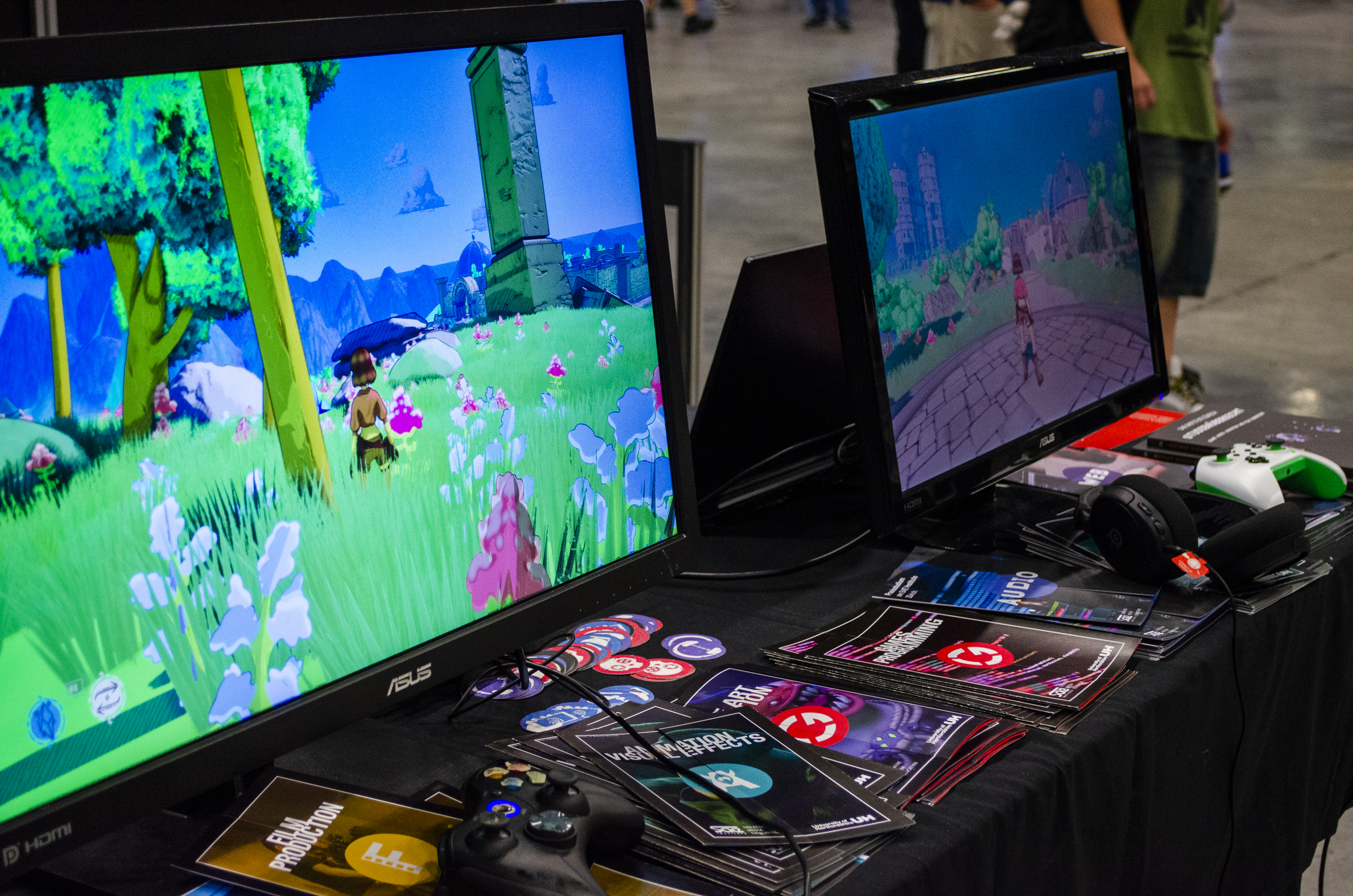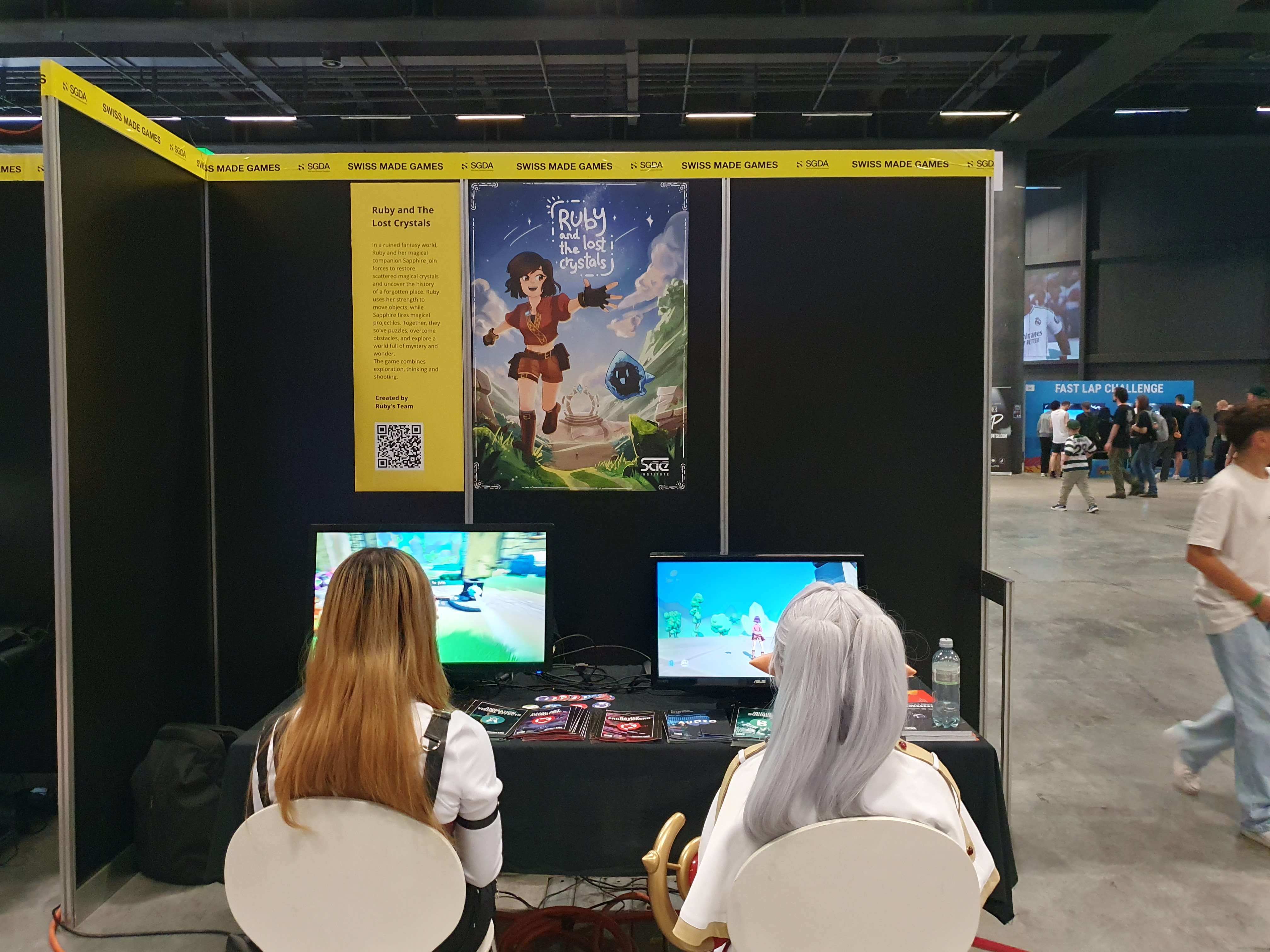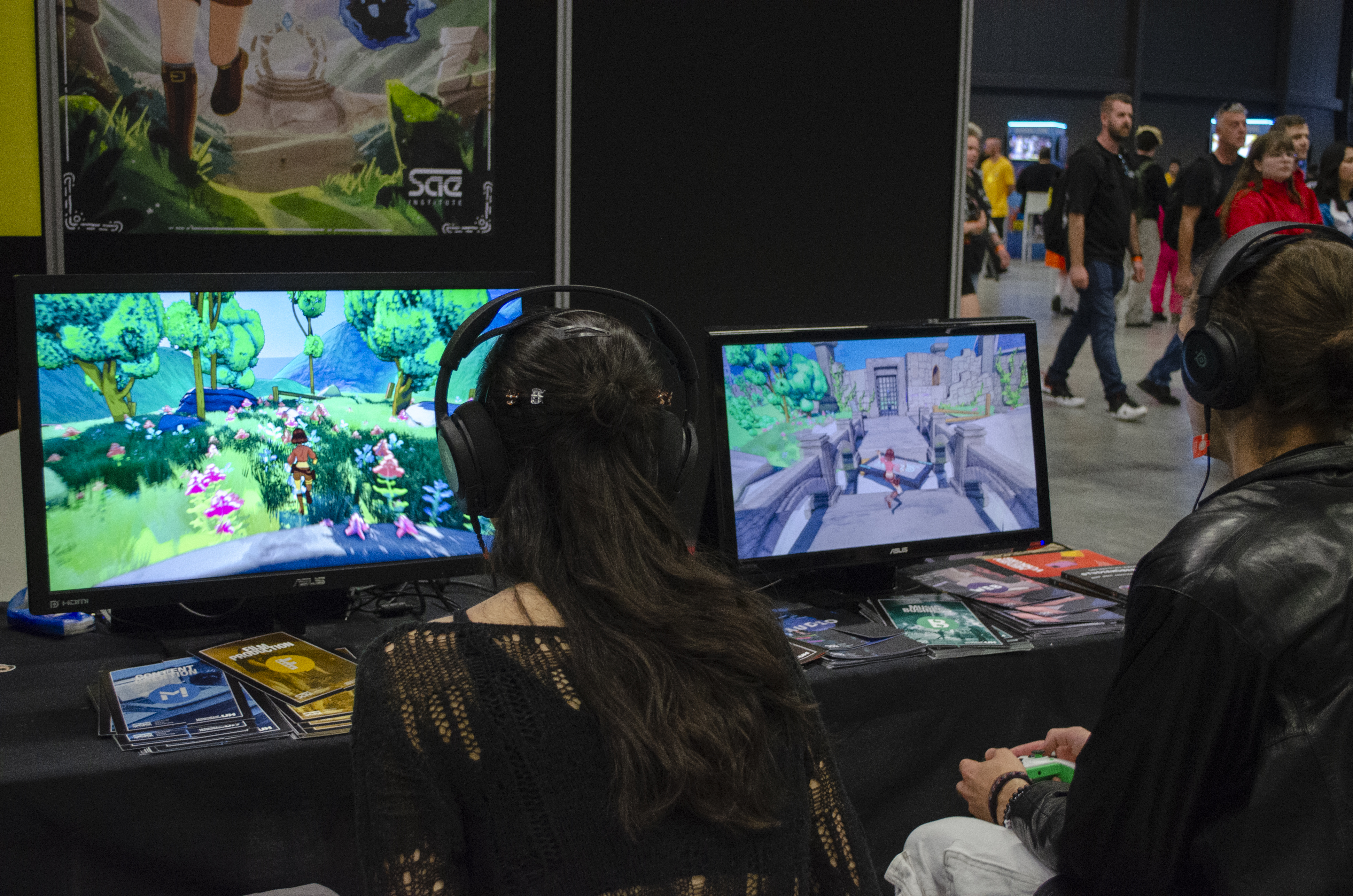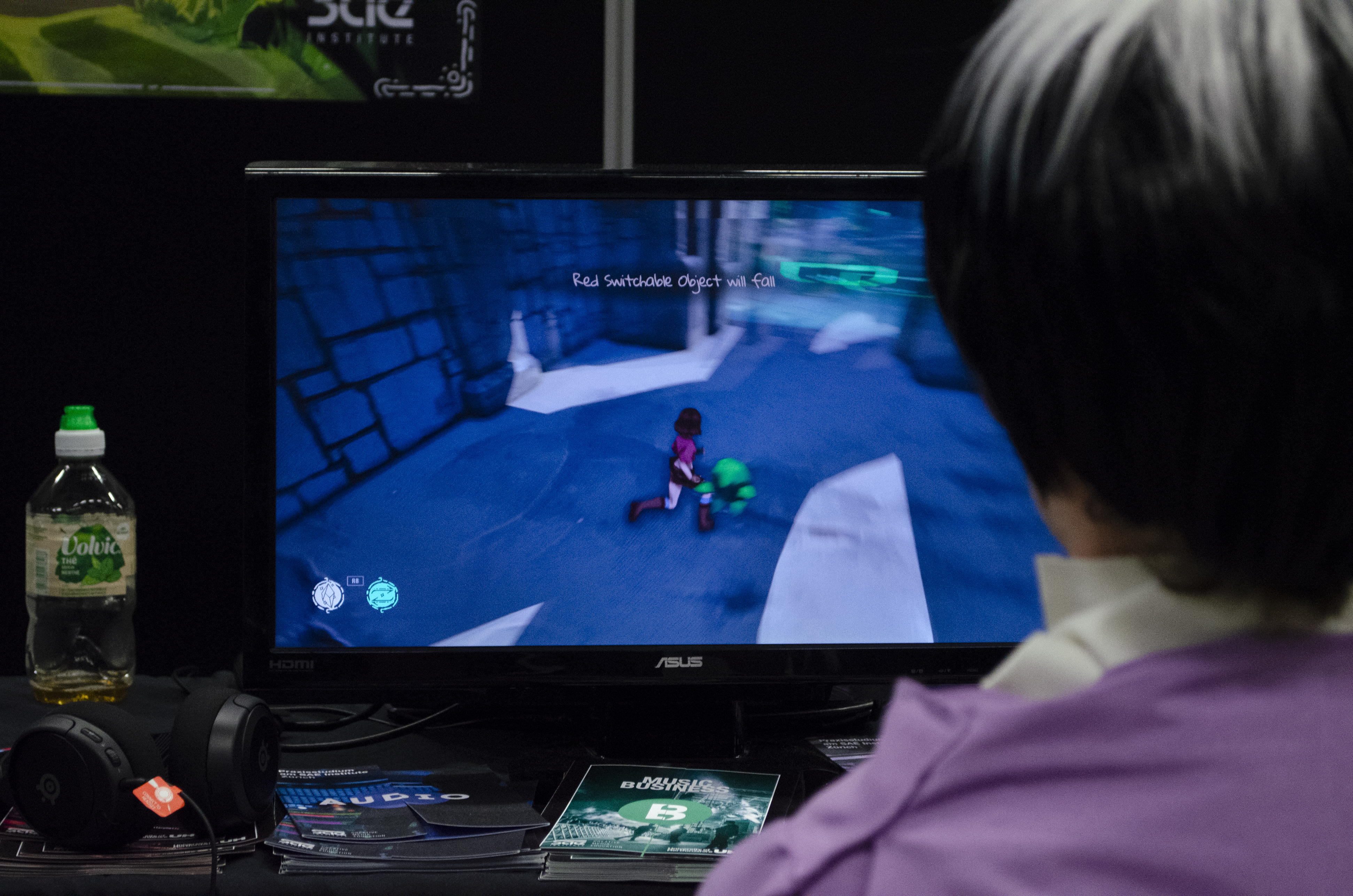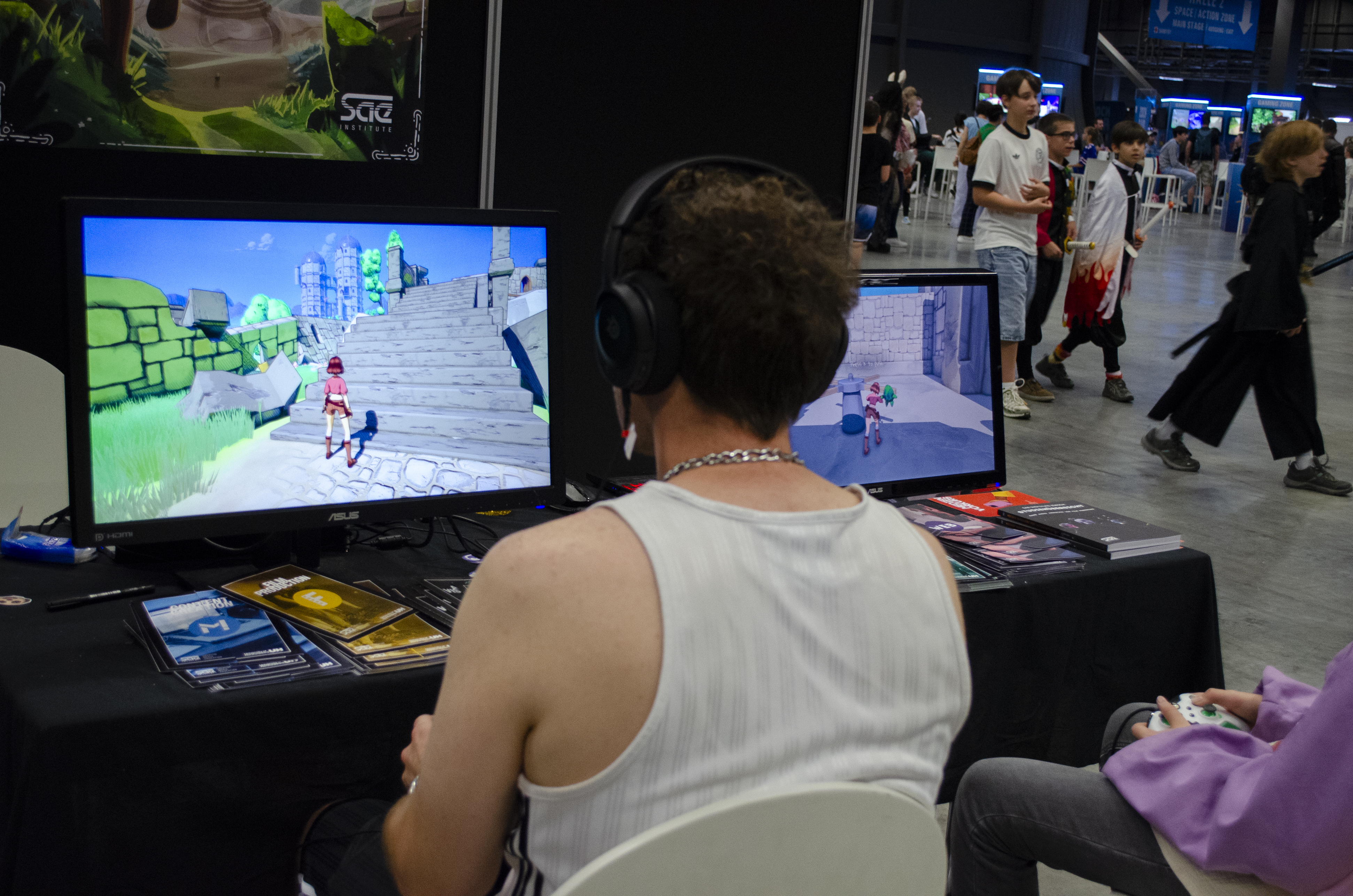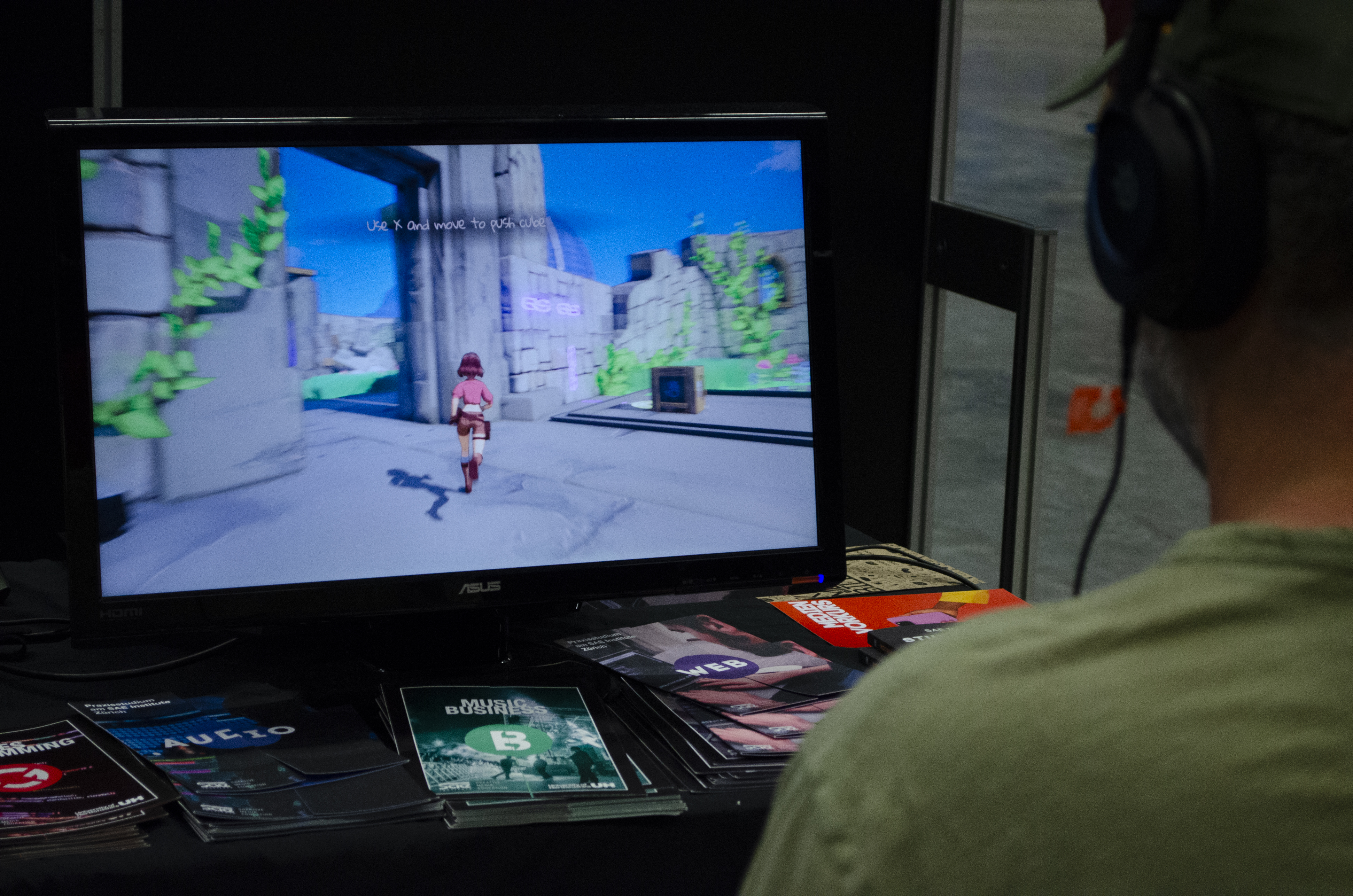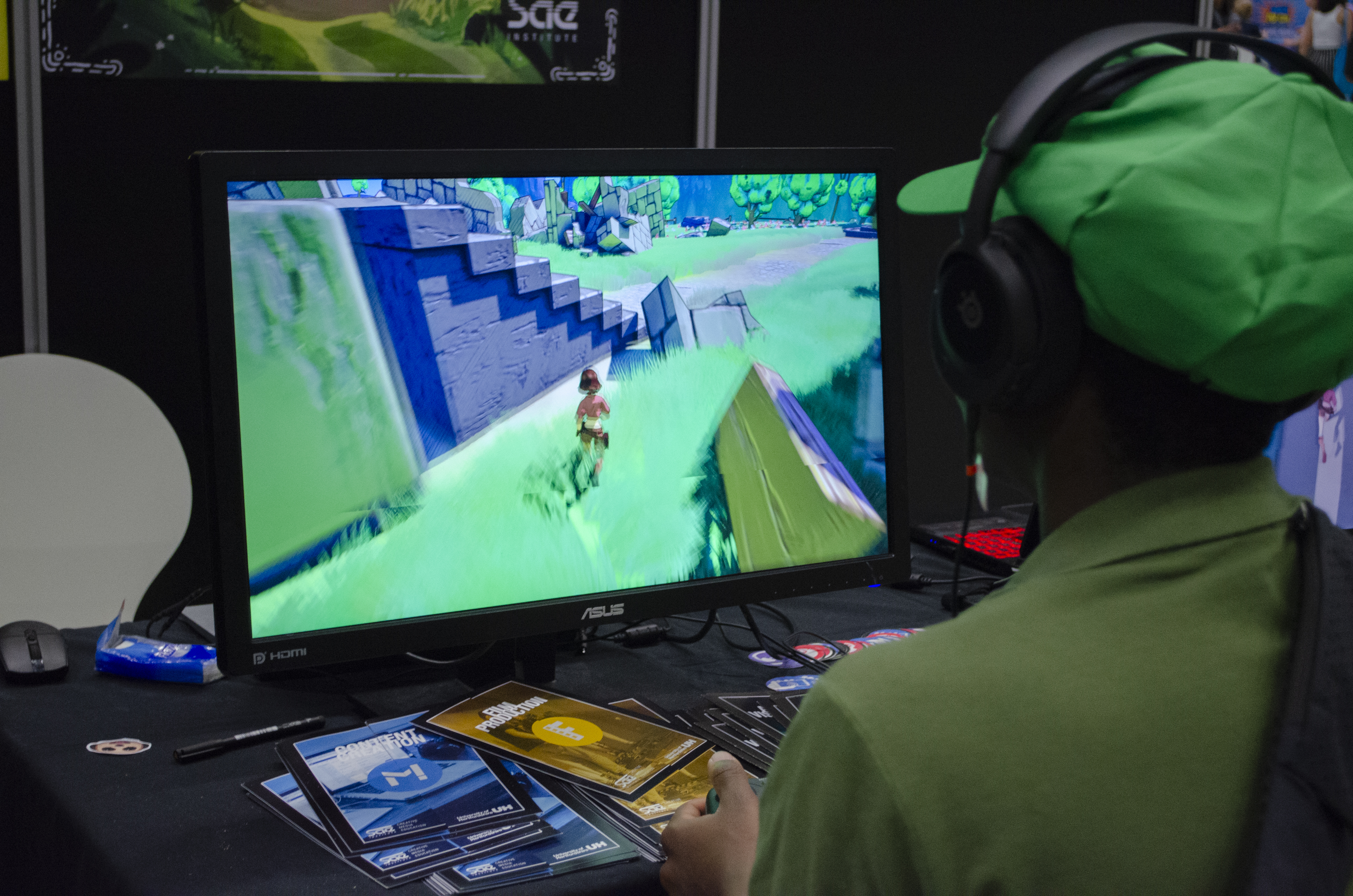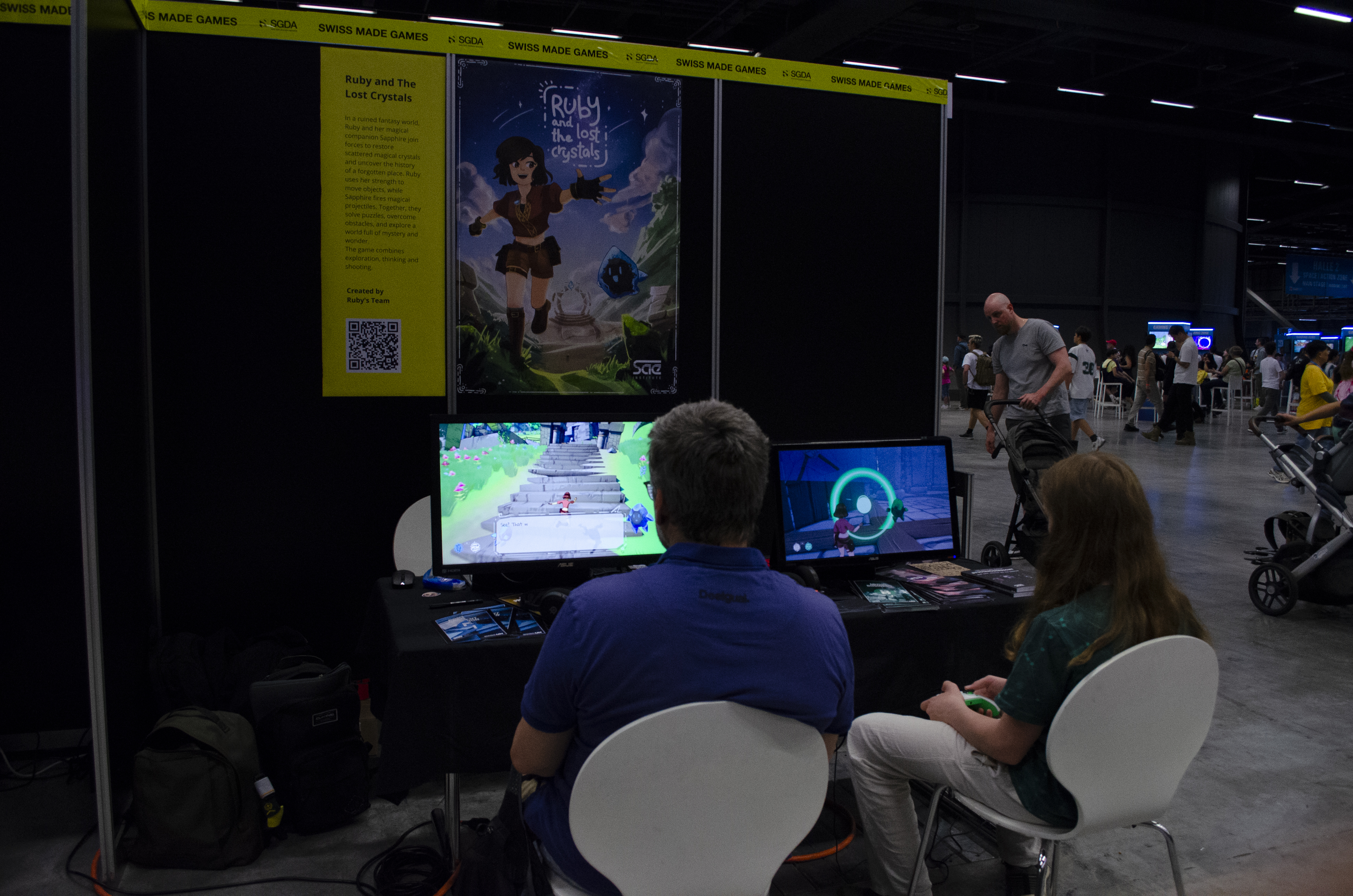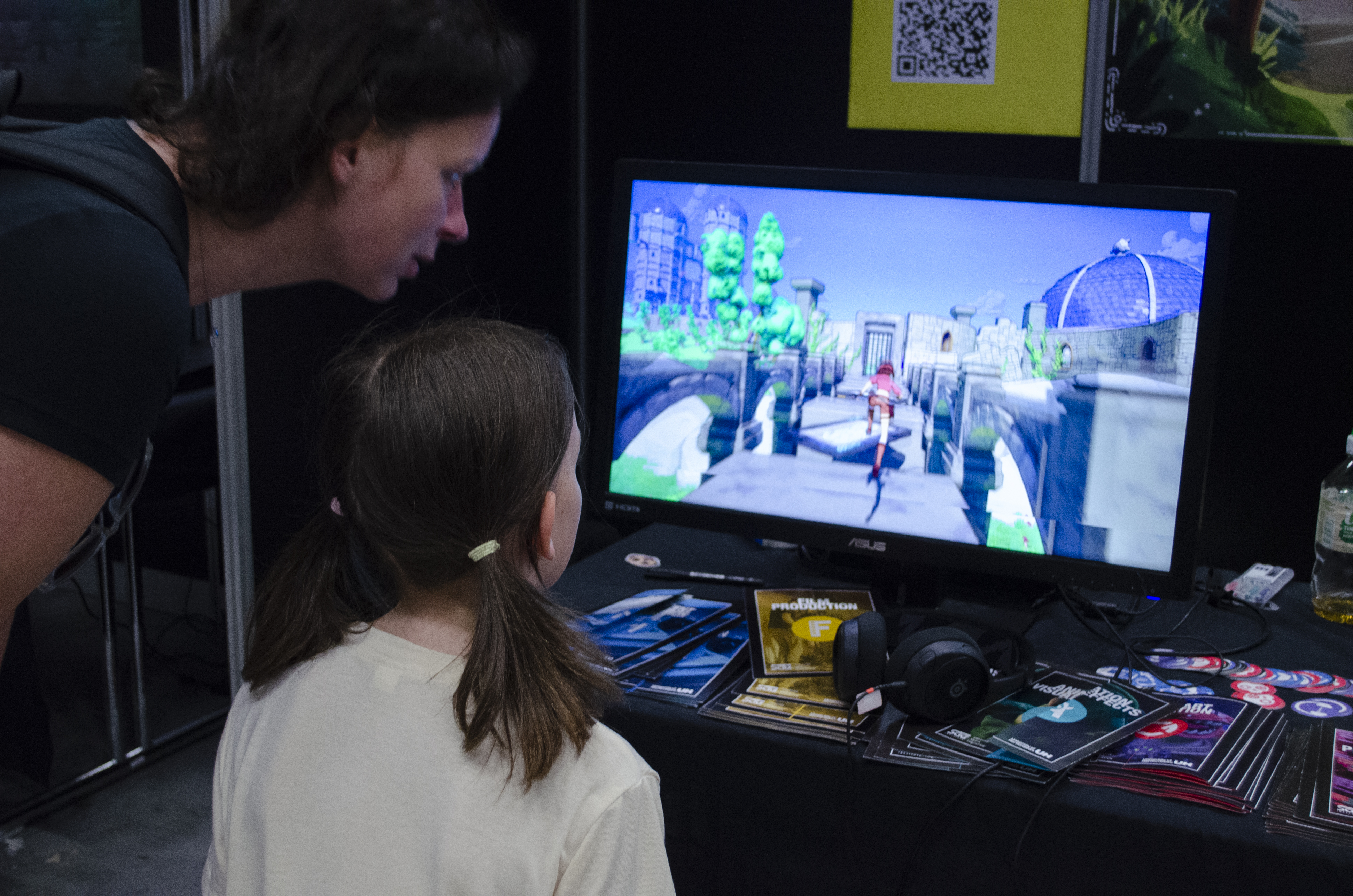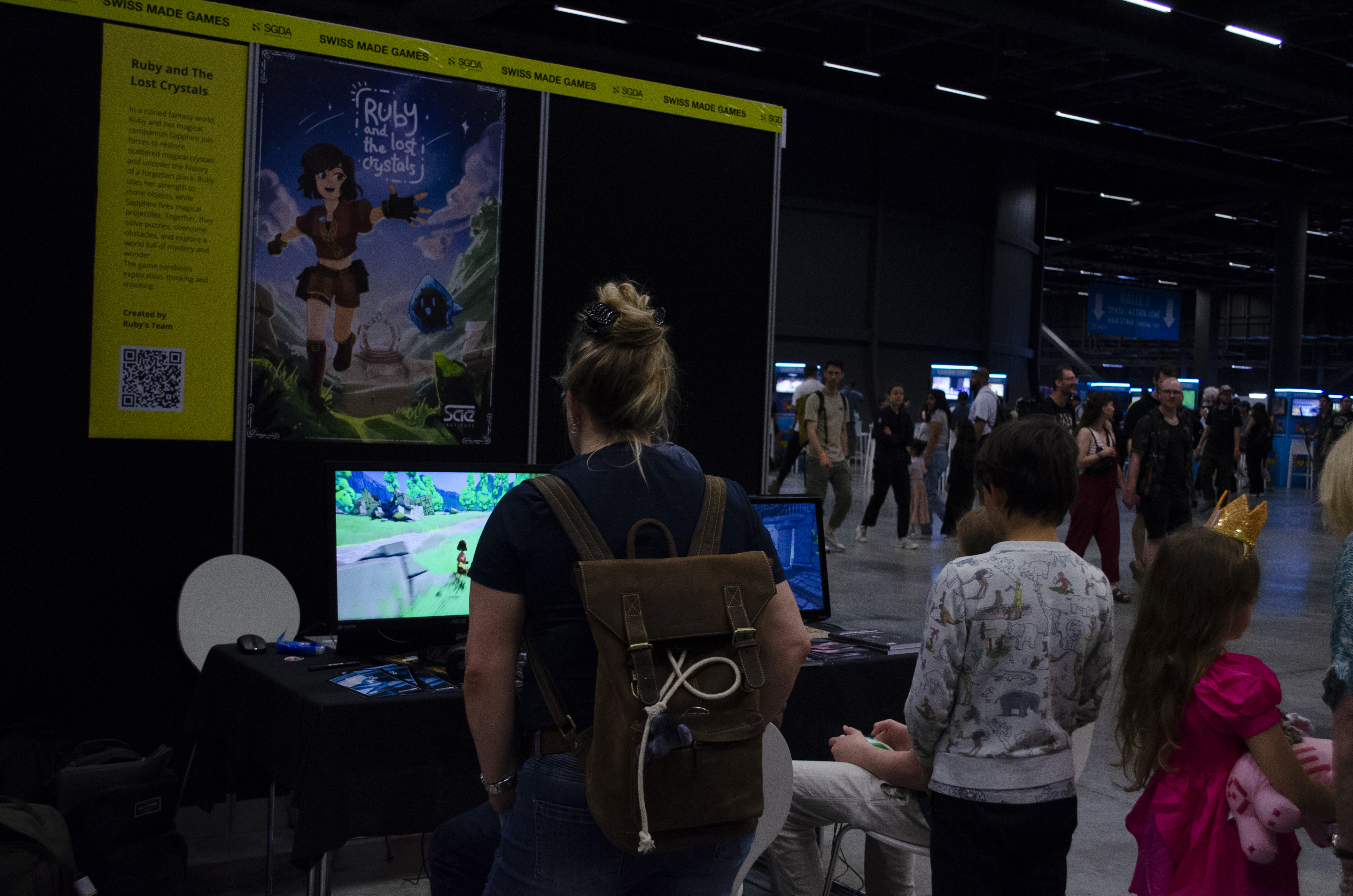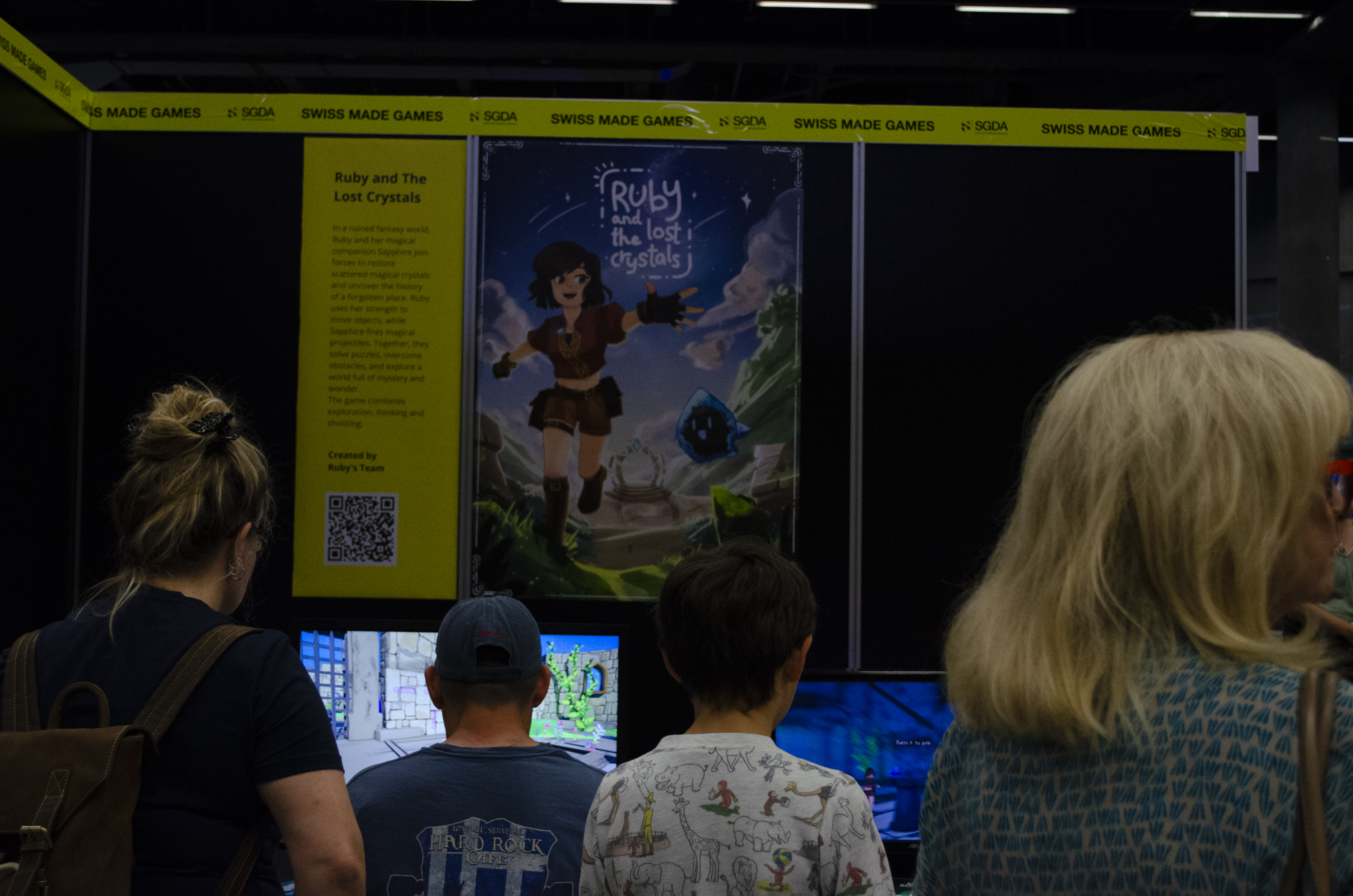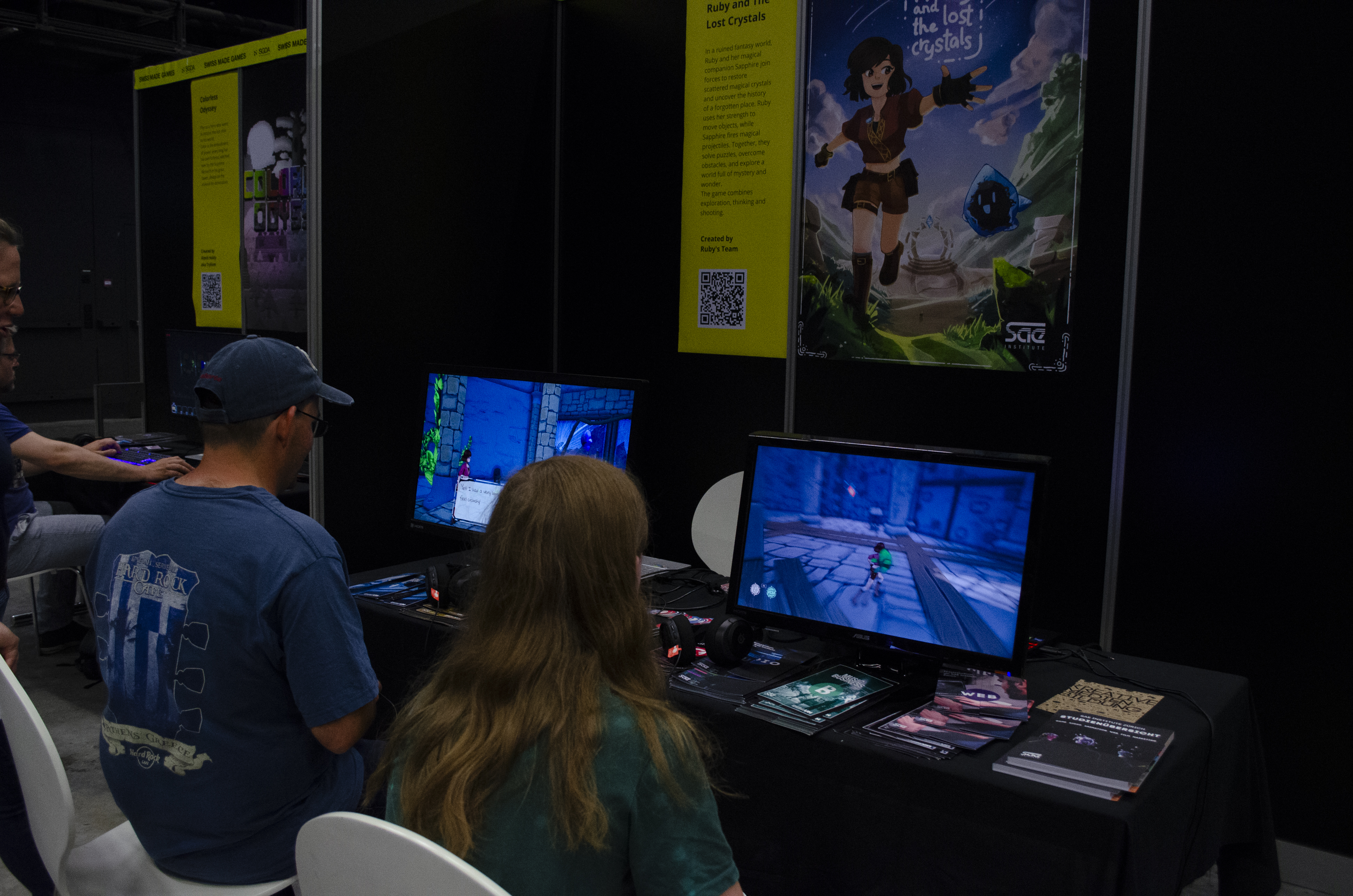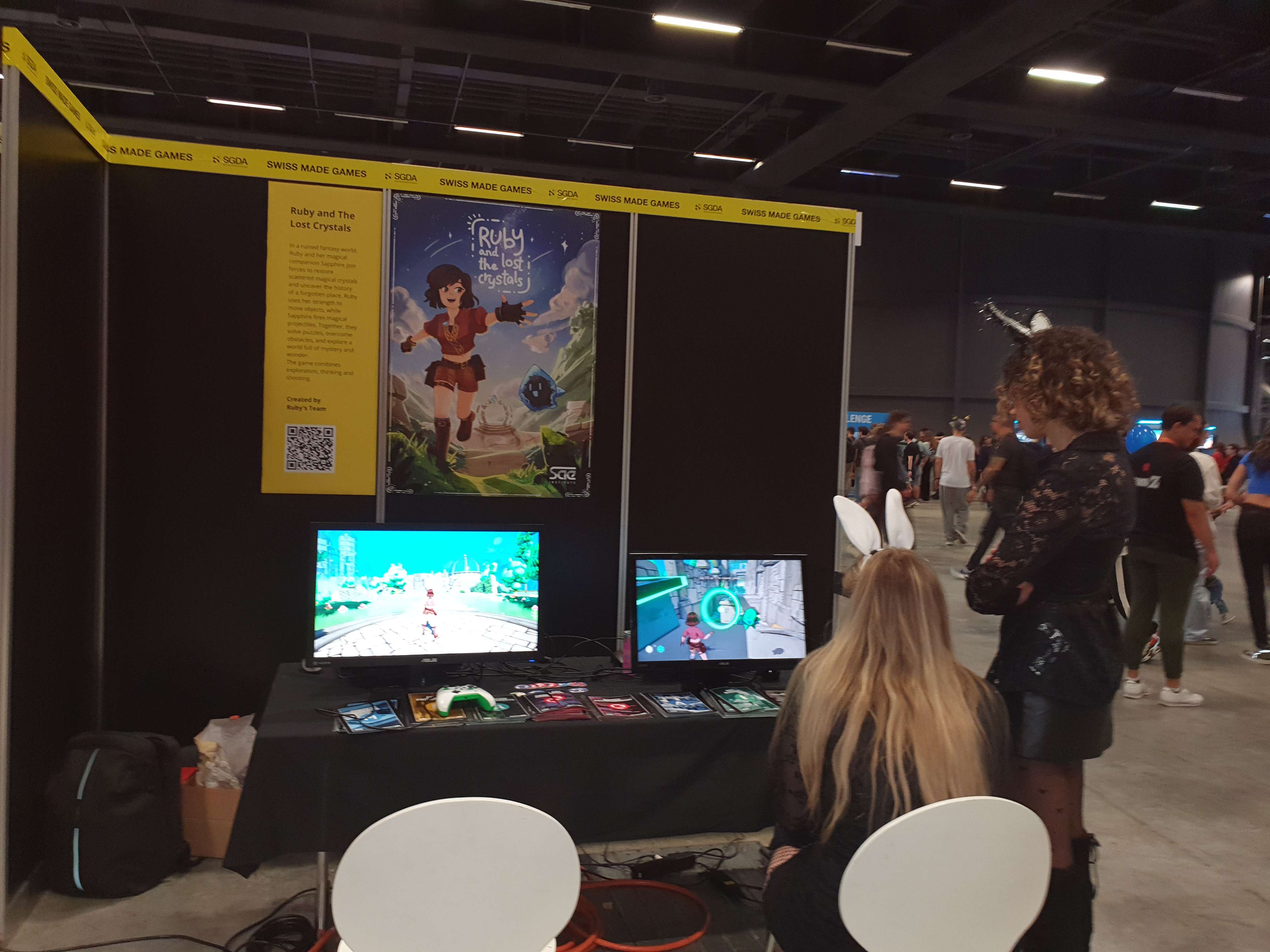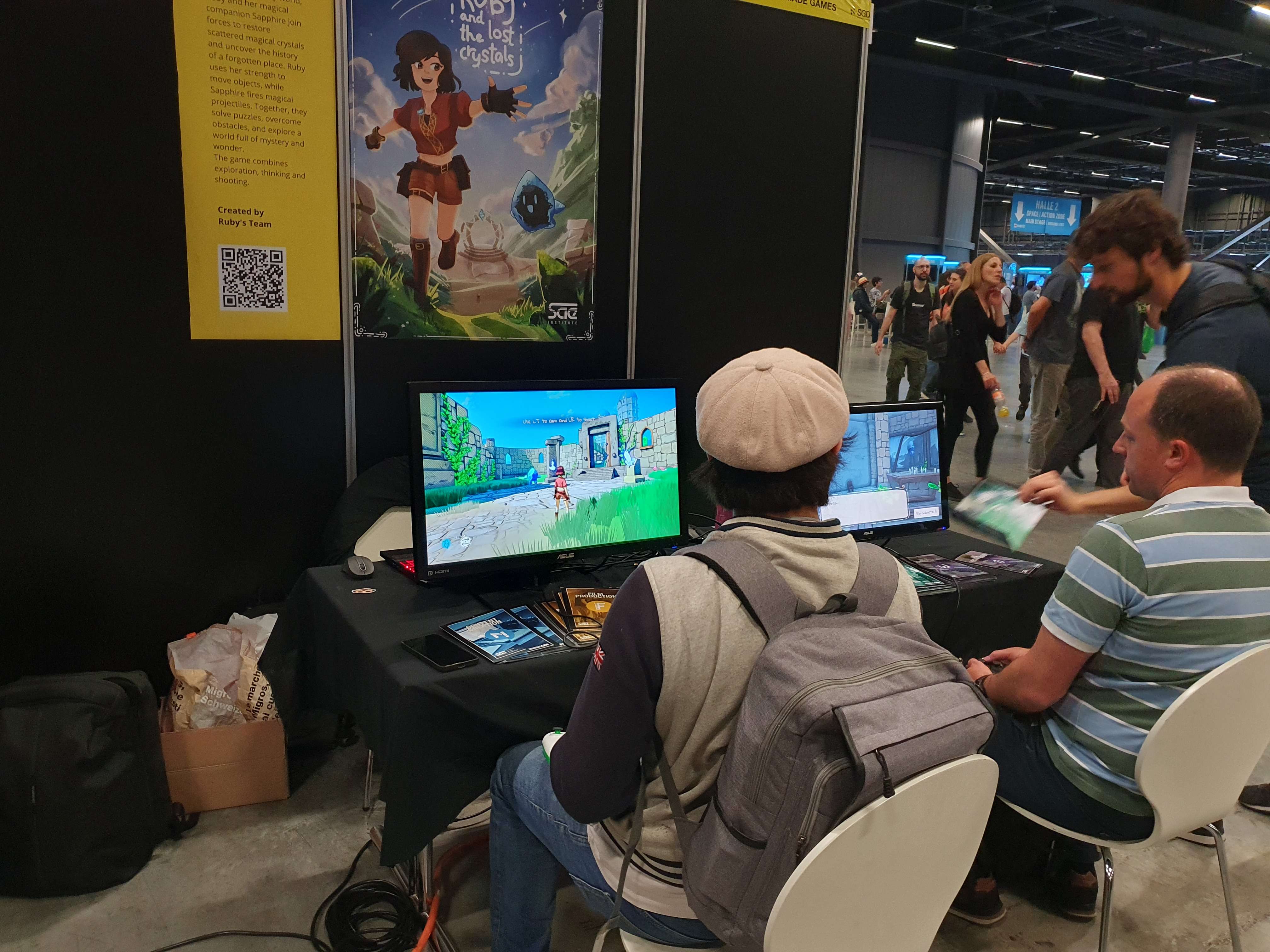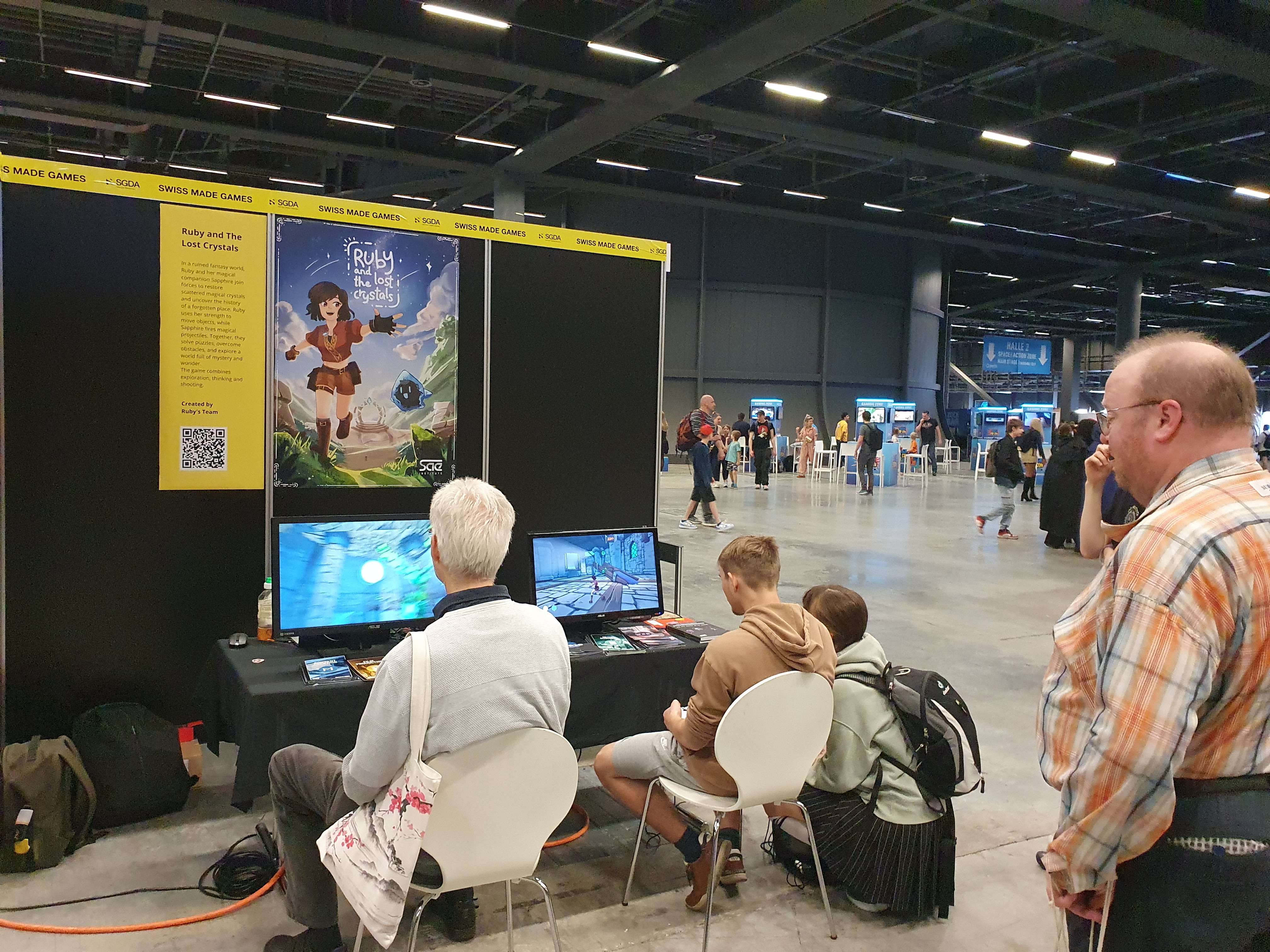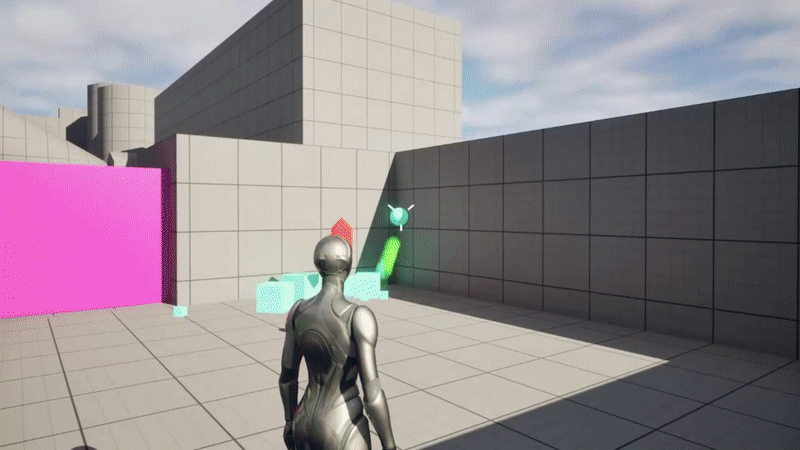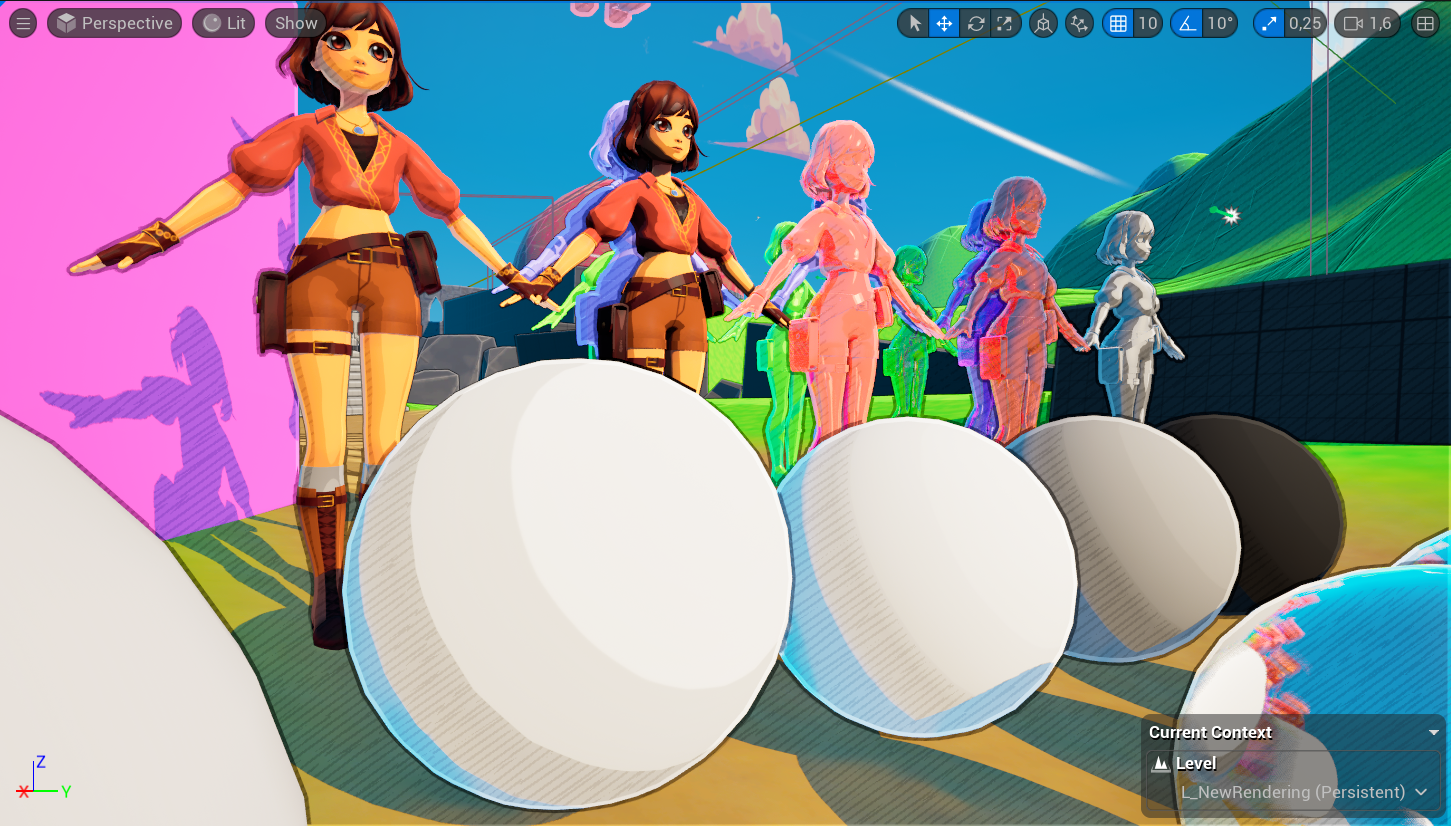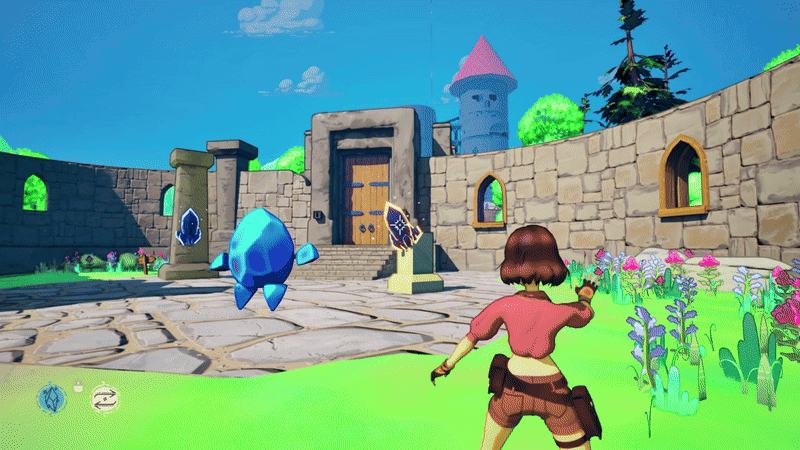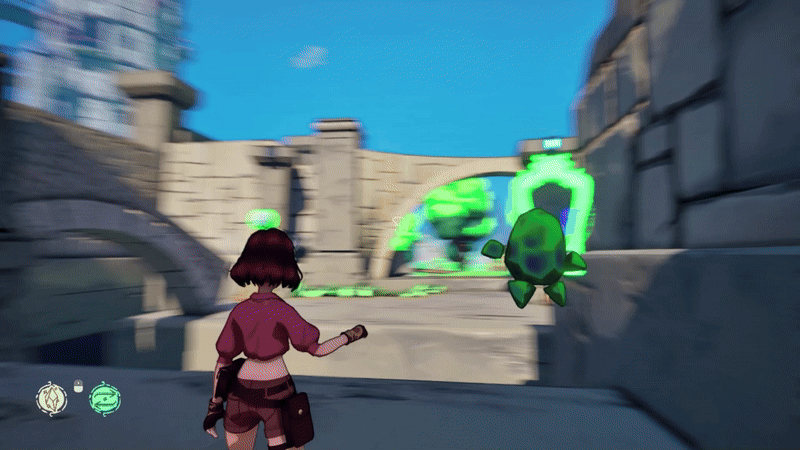
Ruby and The Lost Crystals
-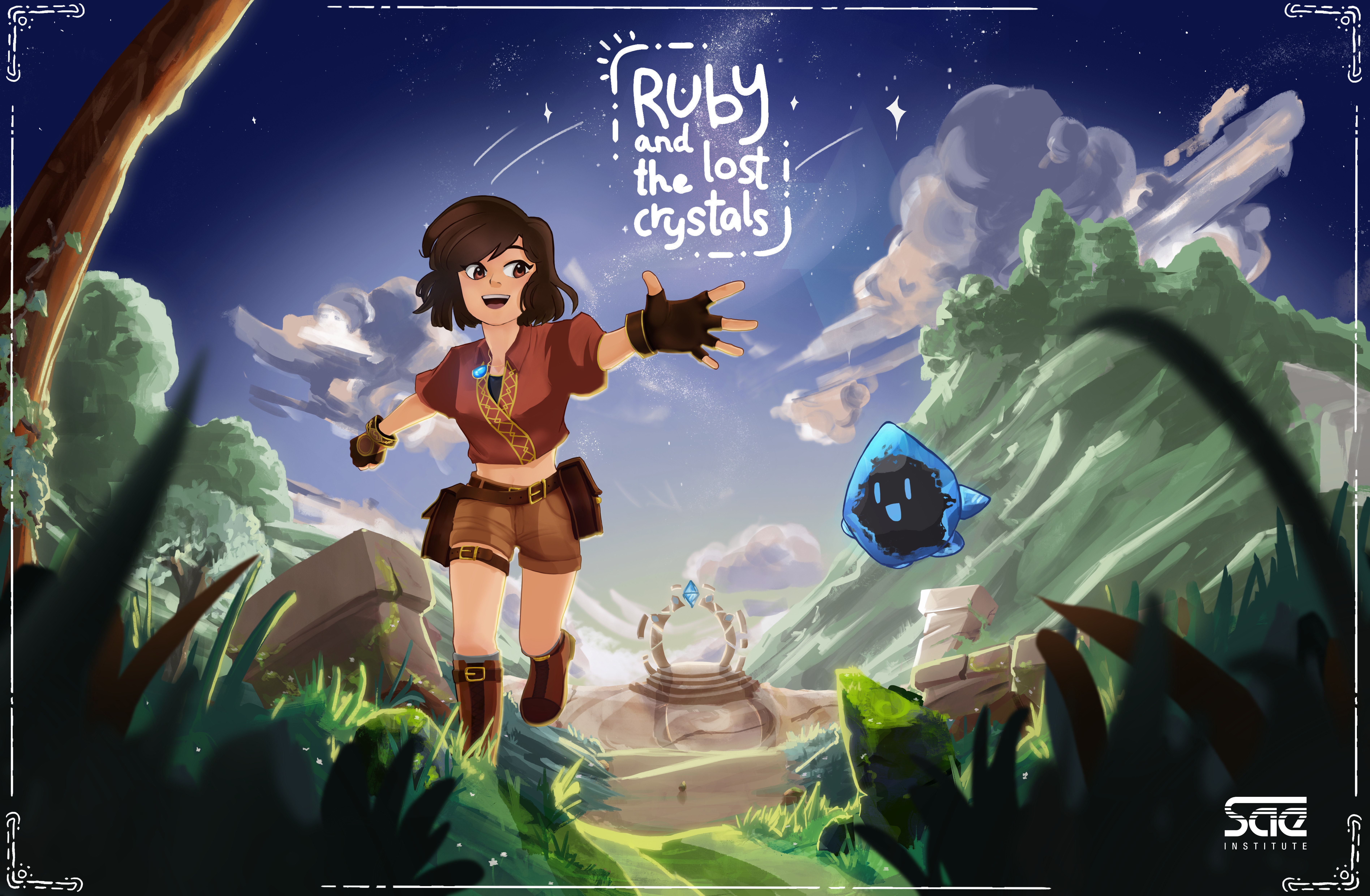
Poster of our game
Context
Ruby and the Lost Crystals is a game project produced as part of the third year of the Bachelor’s programme in Games Programming at SAE-Institut in Geneva. The project is a collaboration between the school’s Game Programming, Game Art, and Audio Engineering departments. It served as the main project for the Games Programmers, while for the Game Artists and Audio Engineers, it was a side project alongside their other coursework.
The aim was to produce a vertical slice in six months (from September to February), enabling us to demonstrate gameplay that is representative of the game’s final concept. The aim of the project is to have a semi-professional experience where each discipline plays an essential role in production and where students can specialise in one aspect of game development.
SAE Awards 2025 - Best Student Game Project
We’re incredibly proud to share that our project won the “Best Student Game Project” award at the SAE Awards 2025, held in Cologne, Germany.
It was a truly special moment to see our work recognized and to have the chance to step on stage and share this experience with students from all over the world.
Huge thanks to our amazing team for their passion and dedication, and to SAE Institute for giving us the opportunity to bring this project to life.

Team photo on stage during the ceremony. |

Photo taken while I was speaking on behalf of the entire team. |

Final photo of the ceremony with all the winners from each SAE school around the world.
Pitch
In a mystical world filled with ancient ruins and forgotten magic, Ruby and her enigmatic companion, Sapphire, must join forces to restore the scattered crystals that once brought life to the land.
Play as this unique duo and combine their abilities to overcome puzzles and challenges: Ruby excels at physical interactions with the environment, while Sapphire can unleash magical projectiles with a range of effects. Master their powers, explore atmospheric ruins, and uncover the secrets of a world in need of restoration.
Trailer
Gameplay
Organisation Chart
Game Programming Team:
- Me (Olivier Pachoud) : Project Co-leader, Lead Game Programmer,
Graphics Programmer & Tech Artist - Remy Lambert : Project Co-leader, Product Owner, Game Programmer & Level Designer
- Constantin Verine : Producer, Game & Audio Programmer.
Game Art Team:
- Isabelle Borcard: Lead Game Art
- Eliot Depres: Level & Props Artist
Audio Team:
- Samuel Rochat: Lead Audio & Sound Integrator in Wwise.
Special Thanks to:
- Diana Vadi: Graphic designer and 2D illustrator.
She notably created the poster for the game. - Bryan Mettraux: Content Creator.
He notably created the trailer for the game.
Contributors
- Prog: Alexis Haldy
- Art: Mélissa Houriet, Samuel Blanc
- Audio: Johan Walder, Yannis von Will, Killian Rossier, Luca Prati, Arber haxidema,
Louise Durmaz, Dylan Fracheboud
Softwares and Tools used
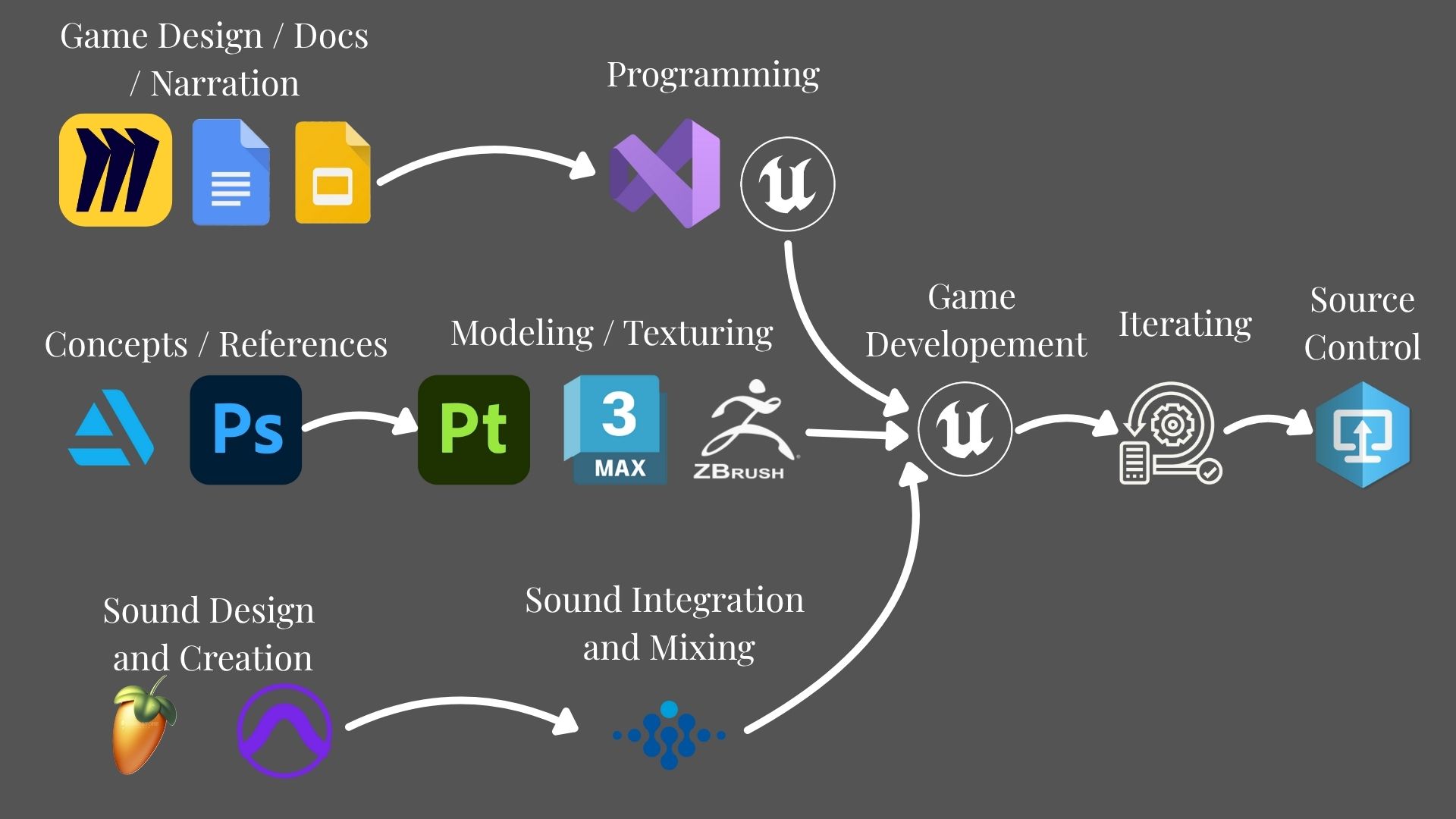
Cel Shading
As a graphics programmer, my main responsibility was to develop a physically-based cel shader that brings a stylised look to the Unreal Engine 5 rendering pipeline. Our goal was to avoid flat or outdated visuals. We aimed for a modern cel shading approach that respects PBR principles. The shader creates color bands, adds outlines that darken object edges, and uses crosshatching to enhance shaded areas.
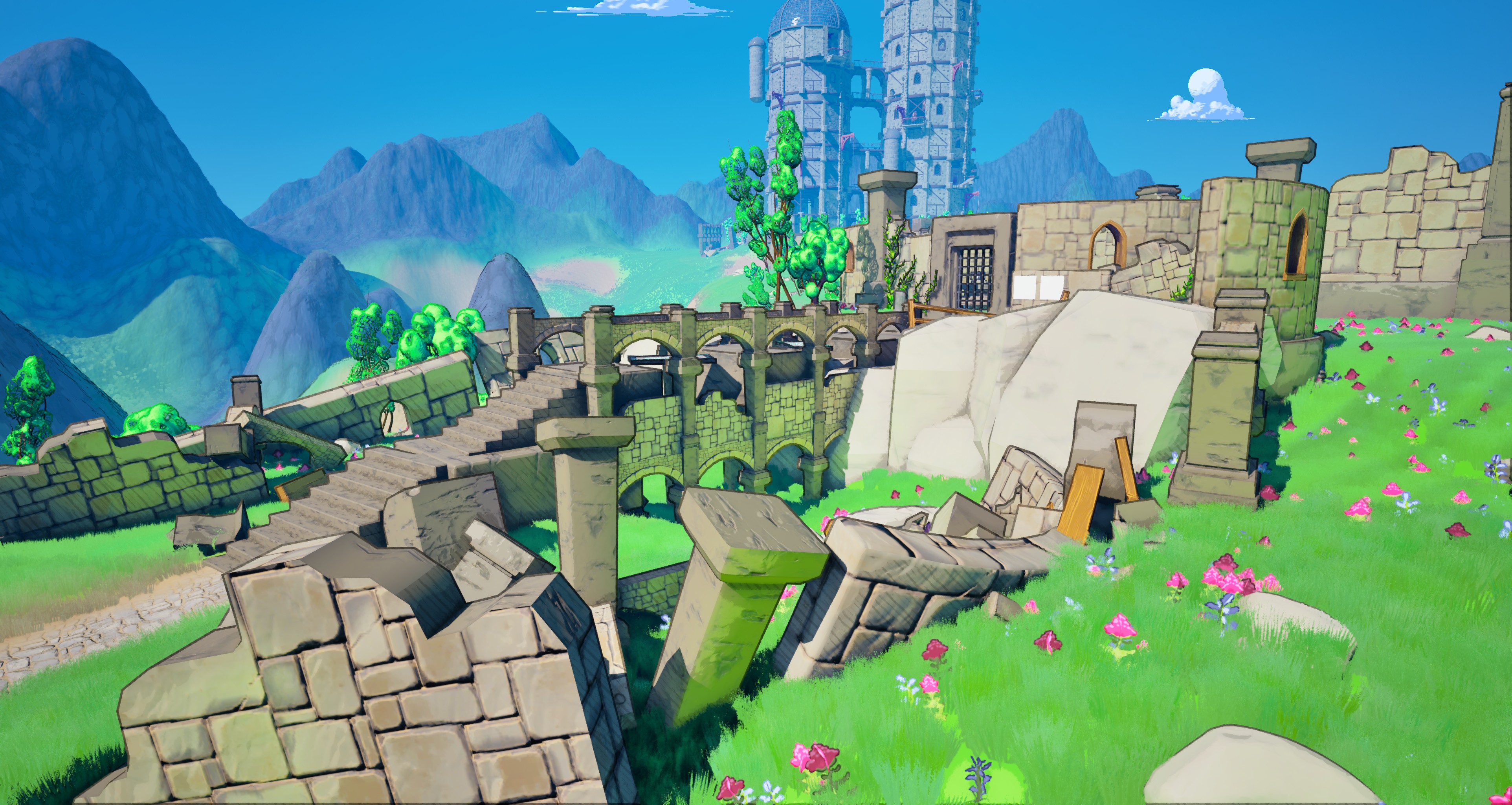
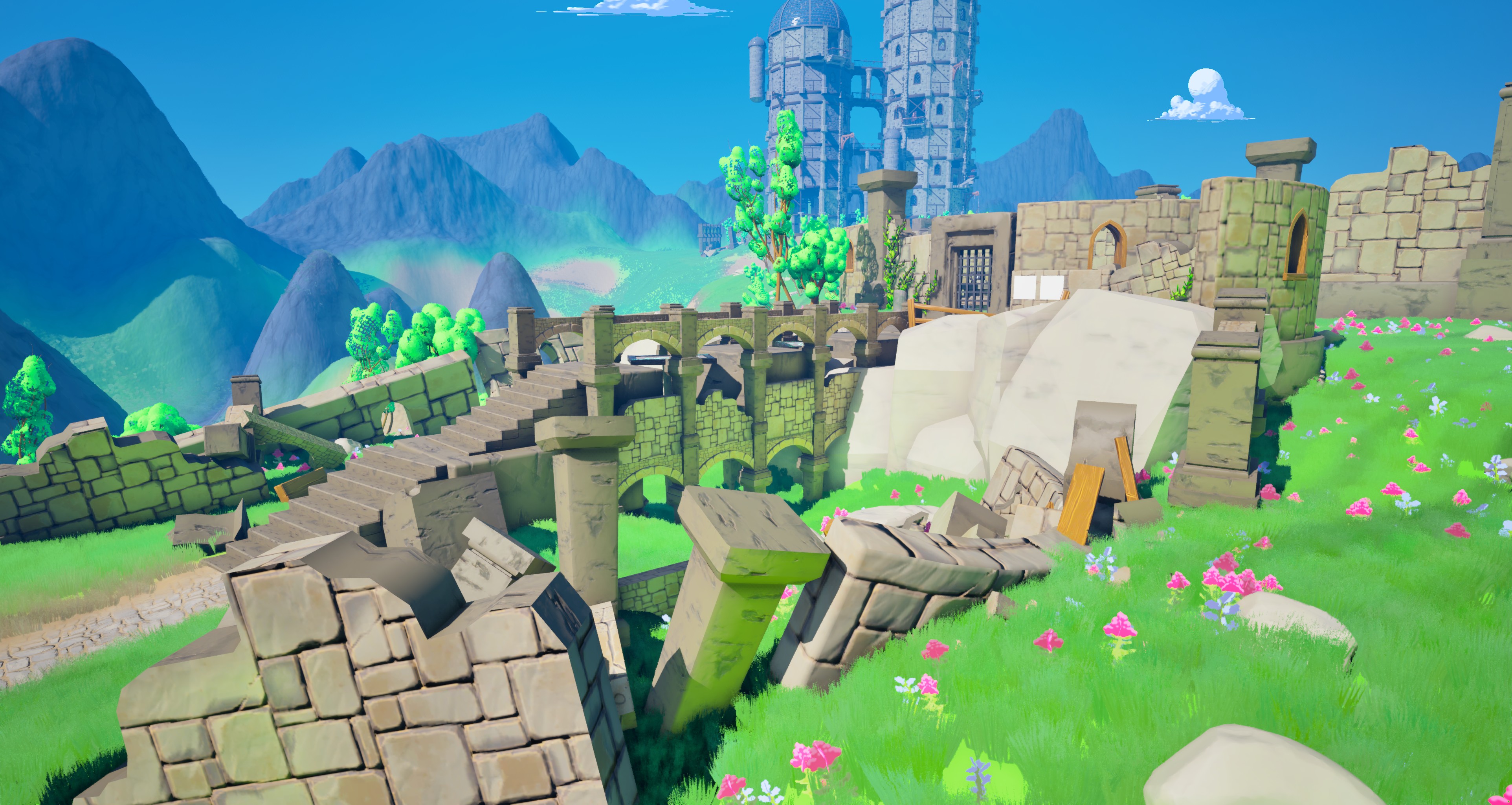
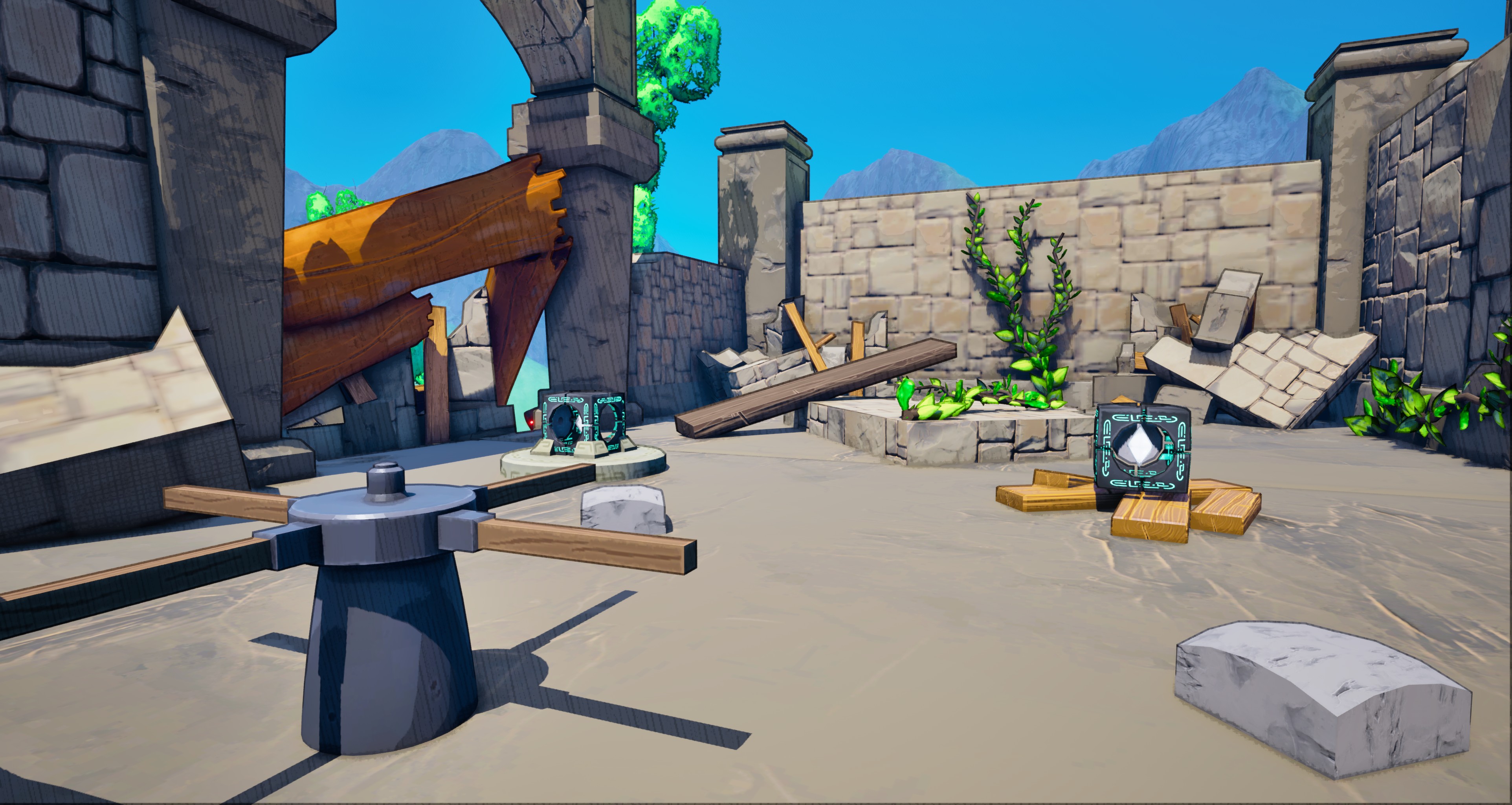
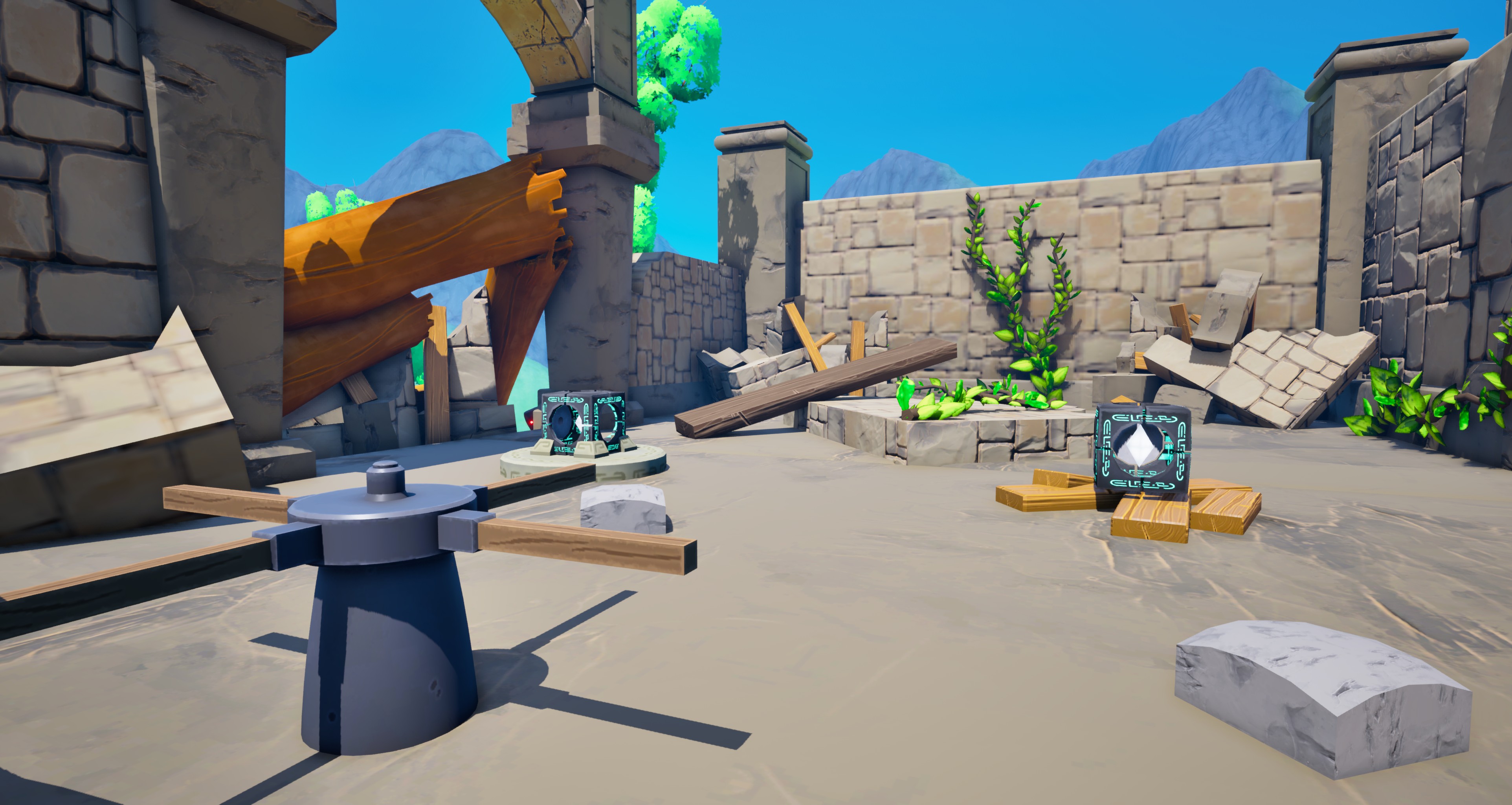
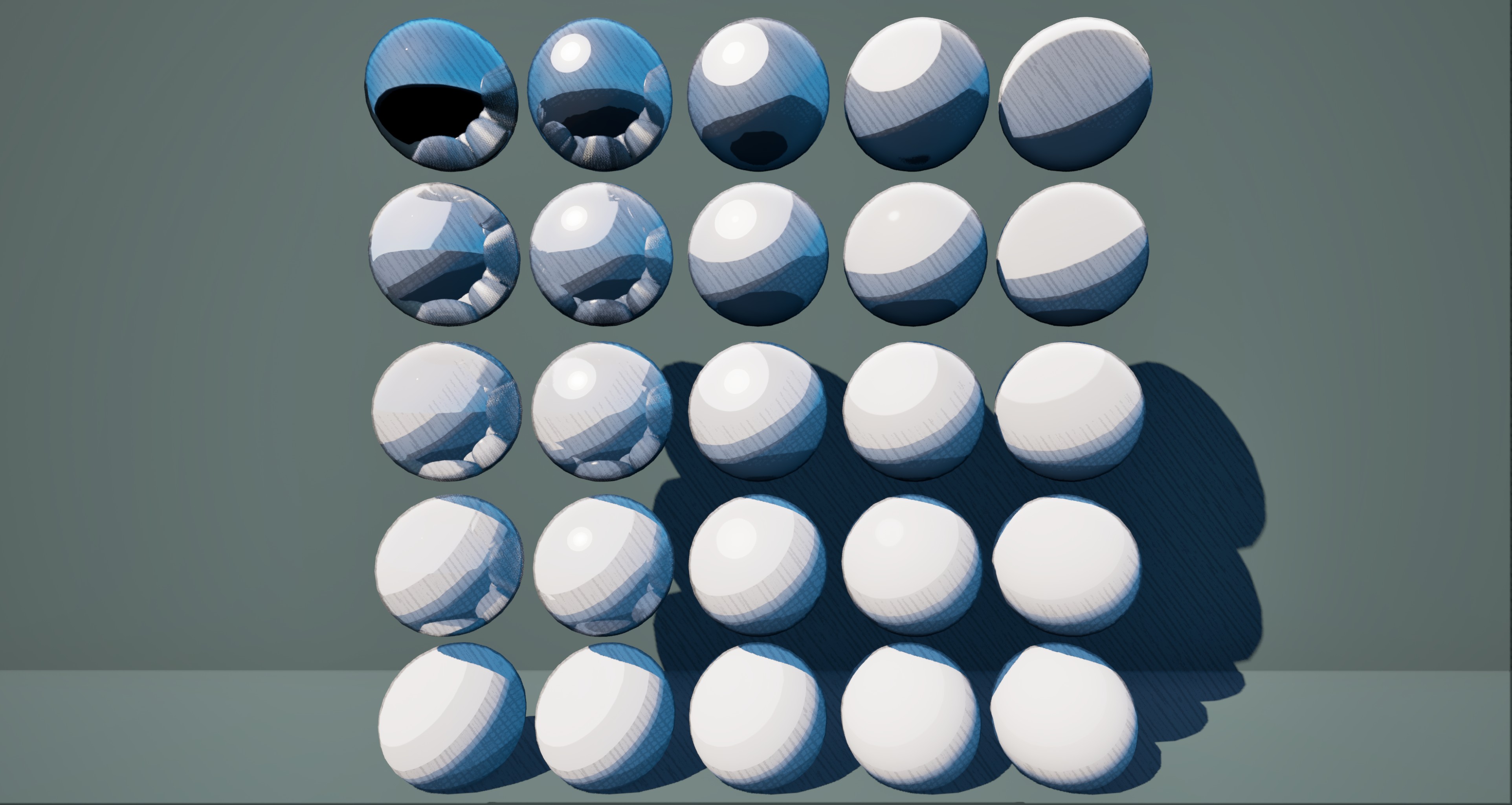
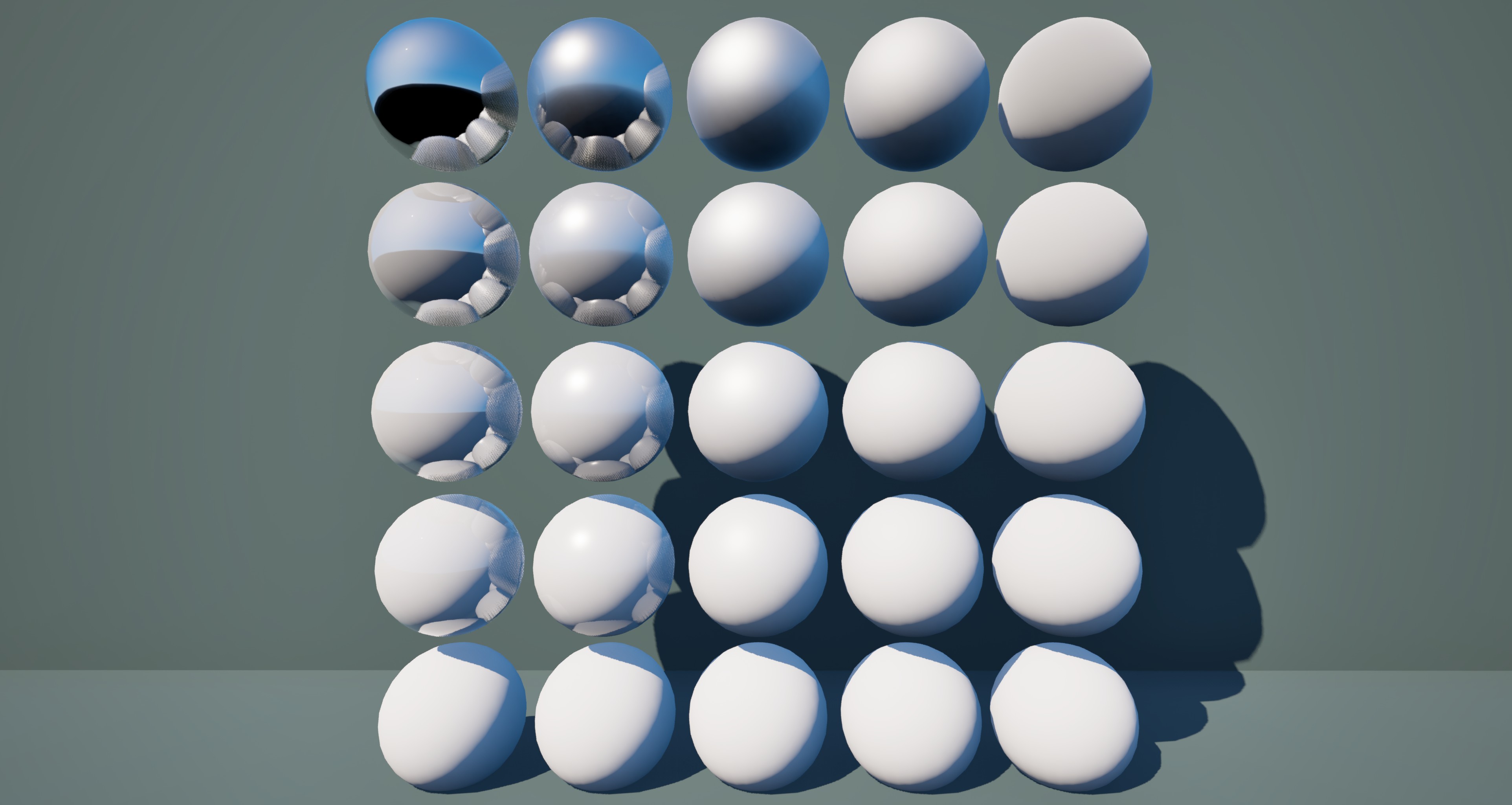
Here is a video showing all the tweakable parameters of my cel shader in Unreal.
Project Iterations
July 2024: The very first game mechanics prototype made in two weeks. We were discovering Unreal:
August 2024: We created this proof of concept during our summer holidays following feedback on our Jullet prototype from our main mentor Nicolas Brière (CEO at Old Skull Games).
The goal was to represent our creative ideas through placeholders, our gameplay ideas through grayboxing, and to prove that the game is fun. We also wanted to start the project on a solid foundation to motivate Game Art and Audio students to come and work on the
31 October: 1st production prototype focused on game mechanics and feedbacks.
The objective of this milestone was to validate all the main features, work on gameplay feedback, and draft an initial level design for the vertical slice.
19 December 2024: 2nd production prototype which aimed to have 80% of the game experience as well as the final level design for the vertical slice. We also worked on the narration to add more context and life to the game.
14 February 2025: vertical slice for the school’s submission deadline.
Although there is still a lot of graybox, we managed to create a stylised art direction that is consistent with our goals of creating a calm and cute atmosphere. We also have a total game time of 40 minutes with in-game narration.
What did I learn ?
- Developing a game on Unreal
- Versioning with Perforce
- Integrating and using Wwise with Unreal
- Team management
- Working with agile methodology
- Distributing tasks between programmers
- Working with game artists
- Working with audio engineers
- Lots of stylised graphics rendering techniques
- Using AI to create concepts and creative ideas
- Polishing a game
- Pitching a game
Events where we showcased our game
Fantasy Basel
Location: Basel (Switzerland).
Dates: 29 to 31 May 2025.
Team members on site: Olivier and Constantin (all 3 days), Isabelle, Diana and Bryan (1 day).
